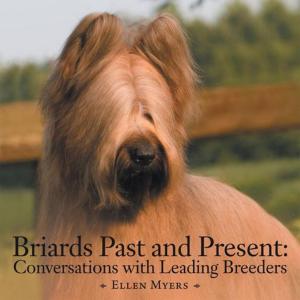| Author: | Iniobong Awak | ISBN: | 9781504966528 |
| Publisher: | AuthorHouse | Publication: | January 22, 2016 |
| Imprint: | AuthorHouse | Language: | English |
| Author: | Iniobong Awak |
| ISBN: | 9781504966528 |
| Publisher: | AuthorHouse |
| Publication: | January 22, 2016 |
| Imprint: | AuthorHouse |
| Language: | English |
Running on the Spot is a narrative on poverty, illiteracy and lack of opportunities. From Mbente to Eniong, Ebiet Asibong to Ine Ekpenyong, Atakpa to Fernando Po, poverty looms large. Yet the human spirit is irrepressible, making the story to also be about love and betrayals. Edem Ikon, the central character, abandons his wife and his village, hoping to better his lot elsewhere. He returns, unexpectedly, after forty years of sojourning in various places, a spent man in his seventies carrying a sack on his head which makes the elders question his sanity, a walking symbol of failure though an unprecedented welcome party is spontaneously held for him. According to Elder Isang, Asibong, Edems father, was a weakling who incurred the wrath of the gods by bringing into their community a woman from Adiabo who had had a twin in an earlier marriage. Edem is the product of that unholy union. He is a symbol of desecration and abomination. Nothing good can come out of him. Is Edems failure, therefore, fatalistically determined? Through a crushing irony, the author casts doubt on this line of reasoning. Isang has led the Mbente army for a decade and he is considered to be a lion. However when the Inokon invaders come on a reprisal attack, he is killed like a chicken in his own backyard and the enemies evaporate without even a rustle of the leaves. As a cult leader, he has compromised his office. The curse on Edem and his pedigree who he despises falls on him instead. The lion falls in place of the weakling. As the book of Ecclesiastes tells us, a living dog is better than a dead lion. Edems adventure in Eniong and later Atakpa, where he serves as both the oracle and the herbalist enables him to deconstruct the gods. The author deploys series of anecdotes through him to whittle down the efficacy of the fatalistic streak in the narrative. Effanga, his uncle, does everything possible to set up Edem Ikon in Eniong. He gives him free accommodation, land, seed yams, labourers, etc, in order to make him a successful farmer like himself. Edem fritters away all the opportunities because he is not cut for hard work. Edems failure, therefore, results from the choice he makes. He chooses the easy or lazy mans approach to life. This tilts him towards the fraudulent rather than honest hard work and drowns him in wine and women, despite his apparent impotence. Edem has no defined vision of the future. Even his decision to go to Fernando Po is taken on the spur of the moment. There is no calculation on his part to his marriage to Mariana in Fernando Po, though it is evident that Mariana has a design on him. The authors descriptive power and his adaptation of the English language to bear the essence of the culture of the people, make the narrative quite entertaining as the reader is easily able to visualize the situations, characters and the coastal milieu of the story. It is a story intended for any averagely educated reader, not just for eggheads. The message of the author seems to be that honest hard work and/or education are fundamental ingredients for success in life. Effiong Akpabio and Effanga Mkpa are examples of those who succeed through hard work, while Marianas phenomenal rise is made possible by her education. Neither ingredient seem available to Edem Ikon. This is why he is such an abysmal failure. Though set in a traditional environment steep in internecine wars and cult devotion, a time past; Running on the Spot bears a message with a modern sensibility and therefore is relevant for all times.
Running on the Spot is a narrative on poverty, illiteracy and lack of opportunities. From Mbente to Eniong, Ebiet Asibong to Ine Ekpenyong, Atakpa to Fernando Po, poverty looms large. Yet the human spirit is irrepressible, making the story to also be about love and betrayals. Edem Ikon, the central character, abandons his wife and his village, hoping to better his lot elsewhere. He returns, unexpectedly, after forty years of sojourning in various places, a spent man in his seventies carrying a sack on his head which makes the elders question his sanity, a walking symbol of failure though an unprecedented welcome party is spontaneously held for him. According to Elder Isang, Asibong, Edems father, was a weakling who incurred the wrath of the gods by bringing into their community a woman from Adiabo who had had a twin in an earlier marriage. Edem is the product of that unholy union. He is a symbol of desecration and abomination. Nothing good can come out of him. Is Edems failure, therefore, fatalistically determined? Through a crushing irony, the author casts doubt on this line of reasoning. Isang has led the Mbente army for a decade and he is considered to be a lion. However when the Inokon invaders come on a reprisal attack, he is killed like a chicken in his own backyard and the enemies evaporate without even a rustle of the leaves. As a cult leader, he has compromised his office. The curse on Edem and his pedigree who he despises falls on him instead. The lion falls in place of the weakling. As the book of Ecclesiastes tells us, a living dog is better than a dead lion. Edems adventure in Eniong and later Atakpa, where he serves as both the oracle and the herbalist enables him to deconstruct the gods. The author deploys series of anecdotes through him to whittle down the efficacy of the fatalistic streak in the narrative. Effanga, his uncle, does everything possible to set up Edem Ikon in Eniong. He gives him free accommodation, land, seed yams, labourers, etc, in order to make him a successful farmer like himself. Edem fritters away all the opportunities because he is not cut for hard work. Edems failure, therefore, results from the choice he makes. He chooses the easy or lazy mans approach to life. This tilts him towards the fraudulent rather than honest hard work and drowns him in wine and women, despite his apparent impotence. Edem has no defined vision of the future. Even his decision to go to Fernando Po is taken on the spur of the moment. There is no calculation on his part to his marriage to Mariana in Fernando Po, though it is evident that Mariana has a design on him. The authors descriptive power and his adaptation of the English language to bear the essence of the culture of the people, make the narrative quite entertaining as the reader is easily able to visualize the situations, characters and the coastal milieu of the story. It is a story intended for any averagely educated reader, not just for eggheads. The message of the author seems to be that honest hard work and/or education are fundamental ingredients for success in life. Effiong Akpabio and Effanga Mkpa are examples of those who succeed through hard work, while Marianas phenomenal rise is made possible by her education. Neither ingredient seem available to Edem Ikon. This is why he is such an abysmal failure. Though set in a traditional environment steep in internecine wars and cult devotion, a time past; Running on the Spot bears a message with a modern sensibility and therefore is relevant for all times.















